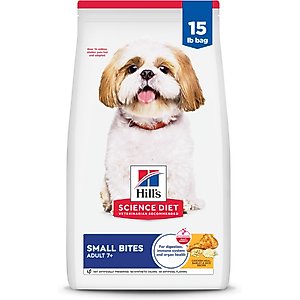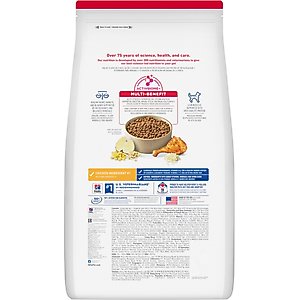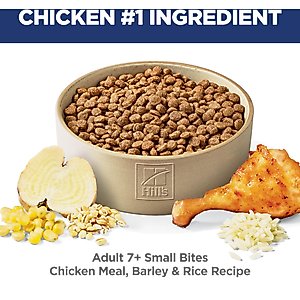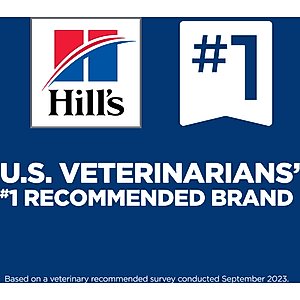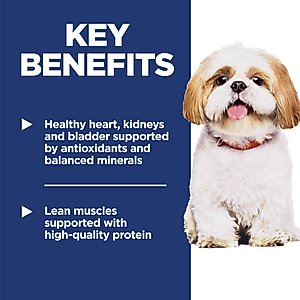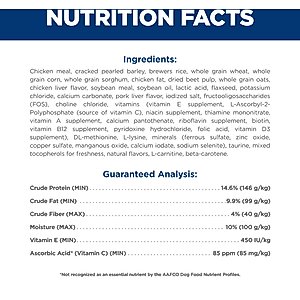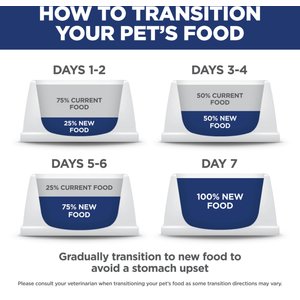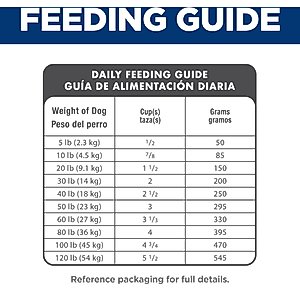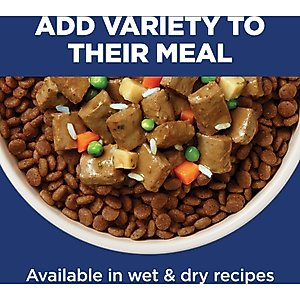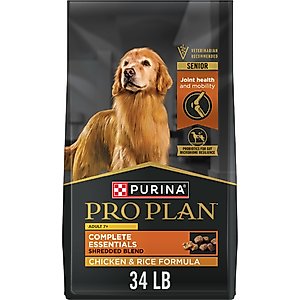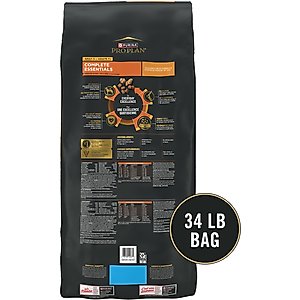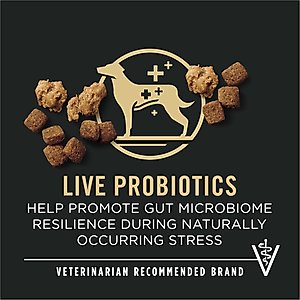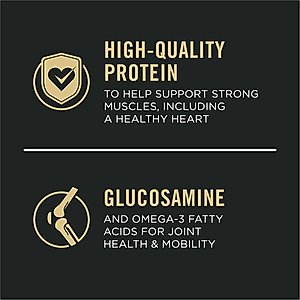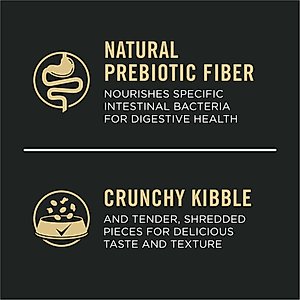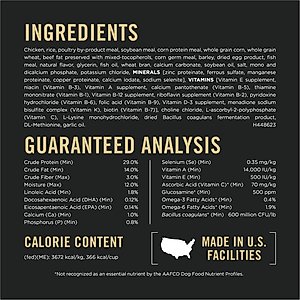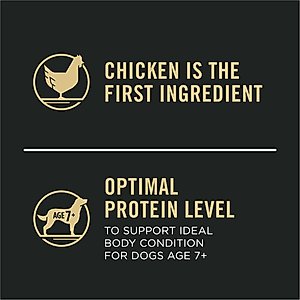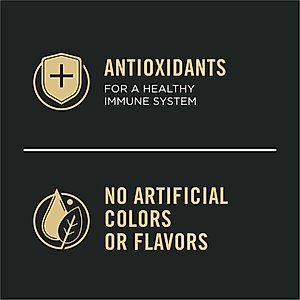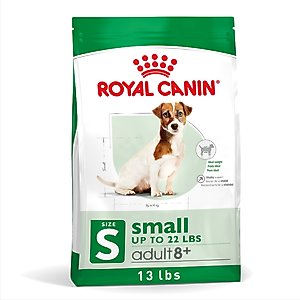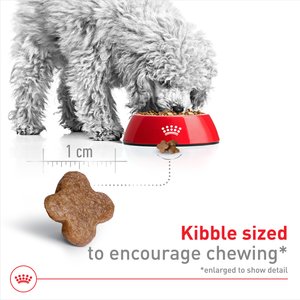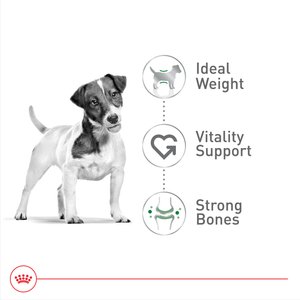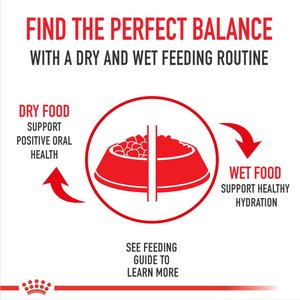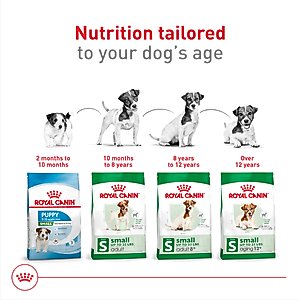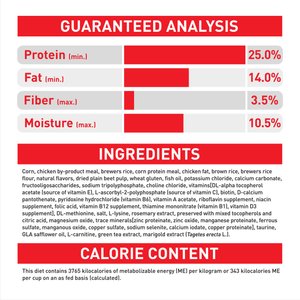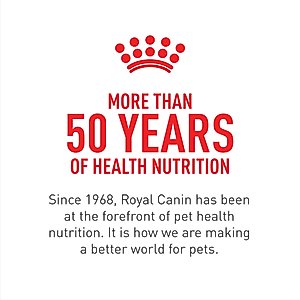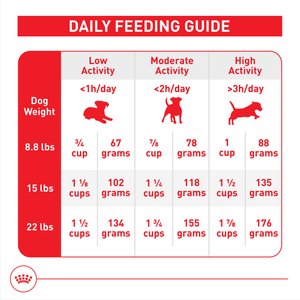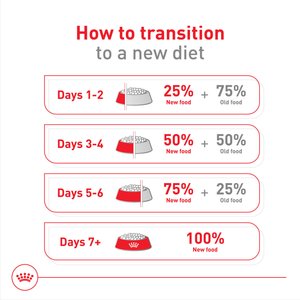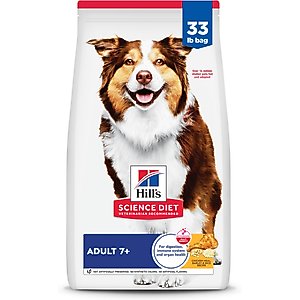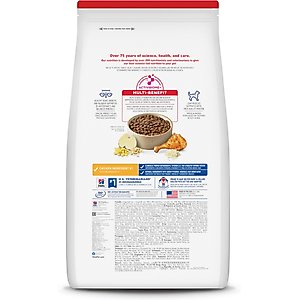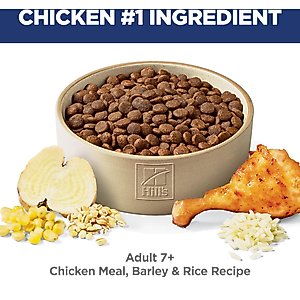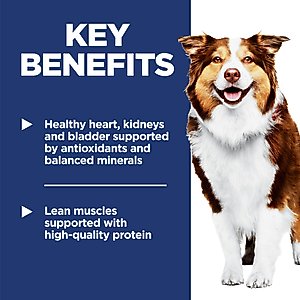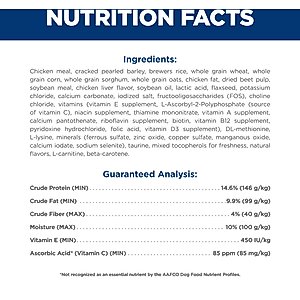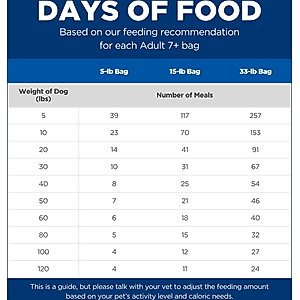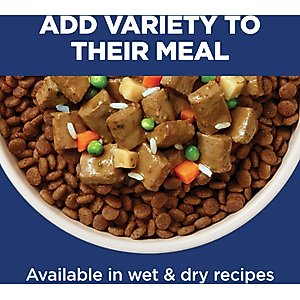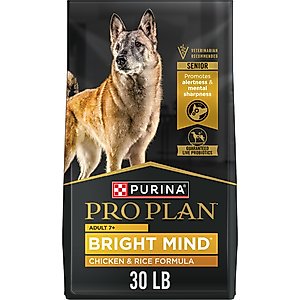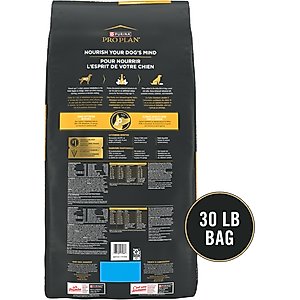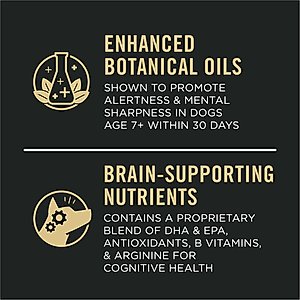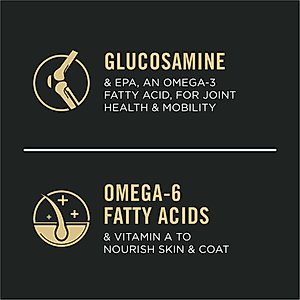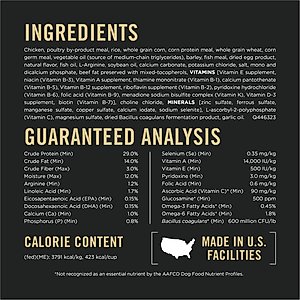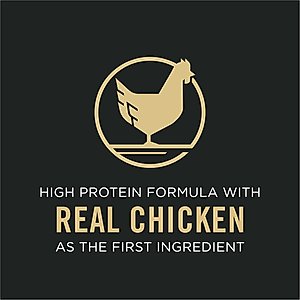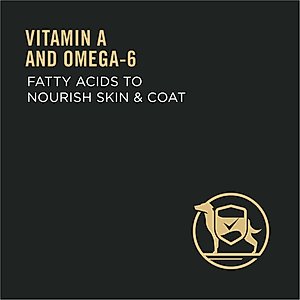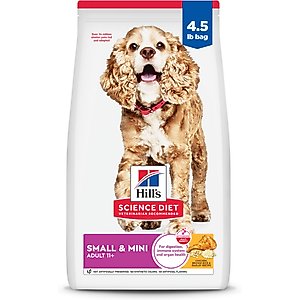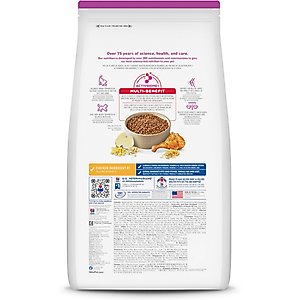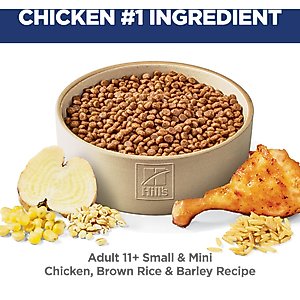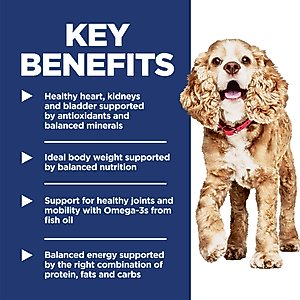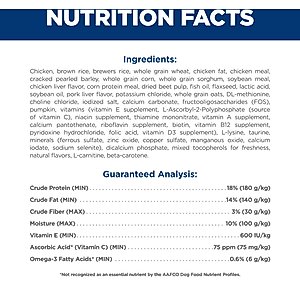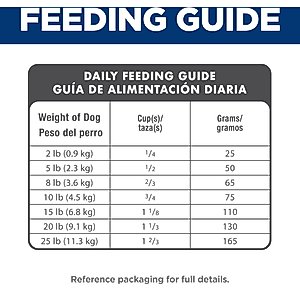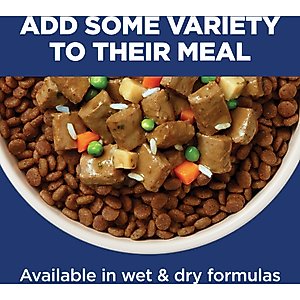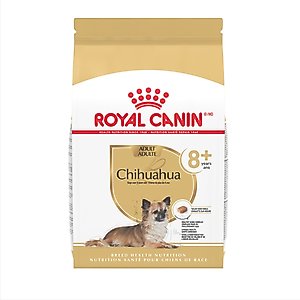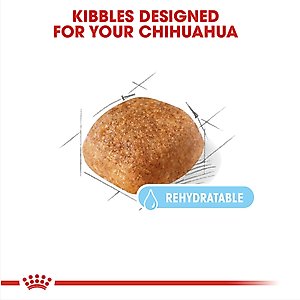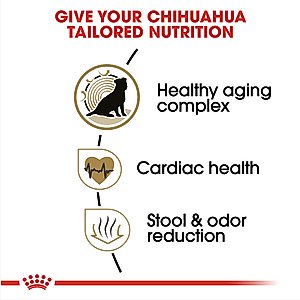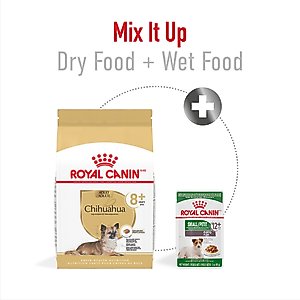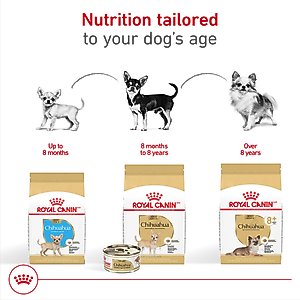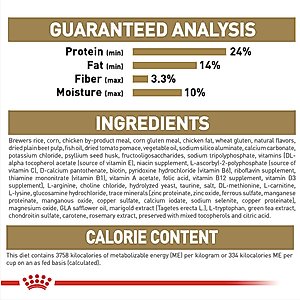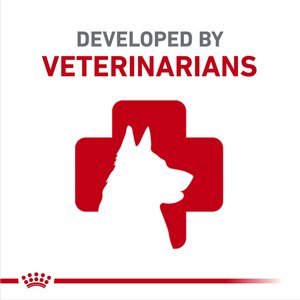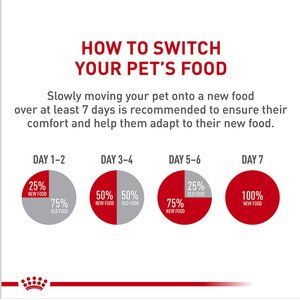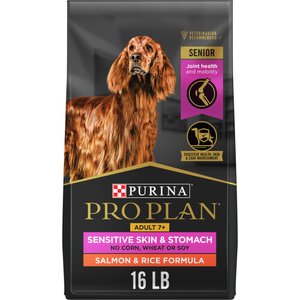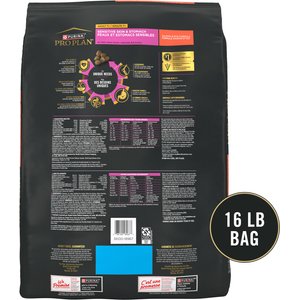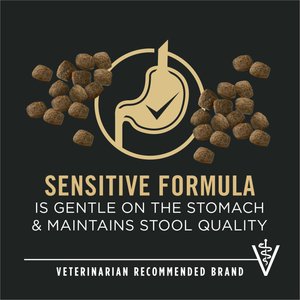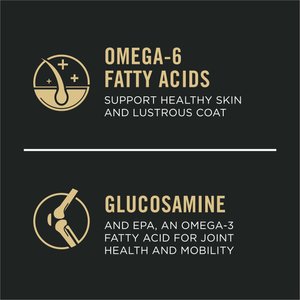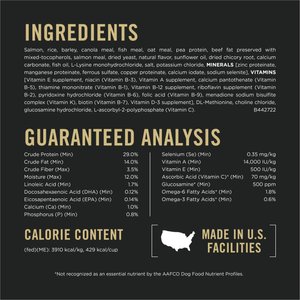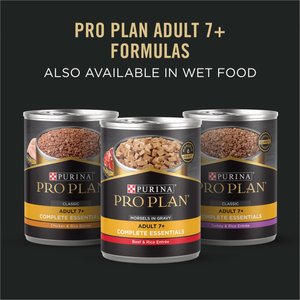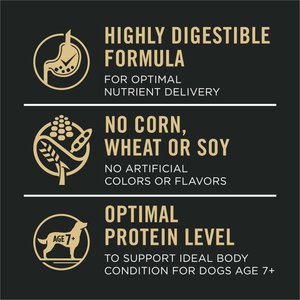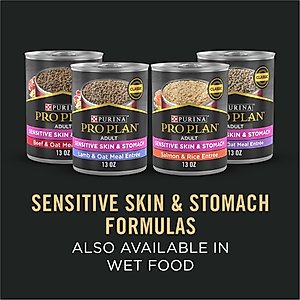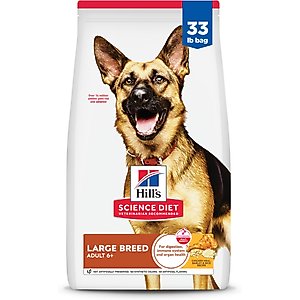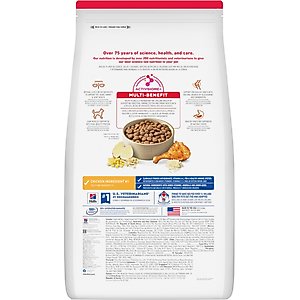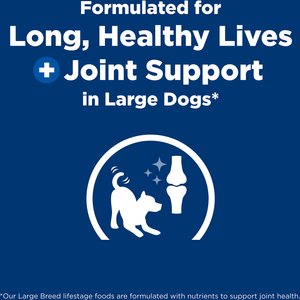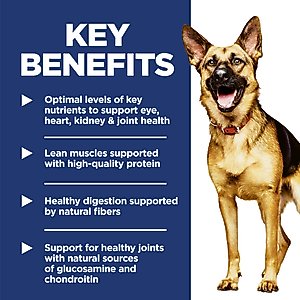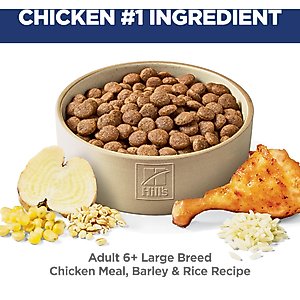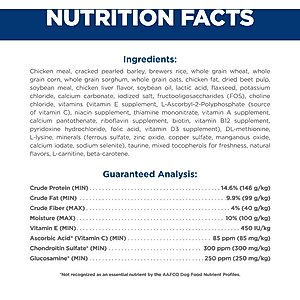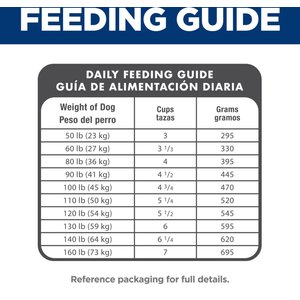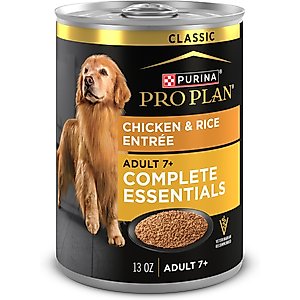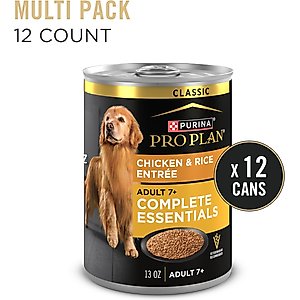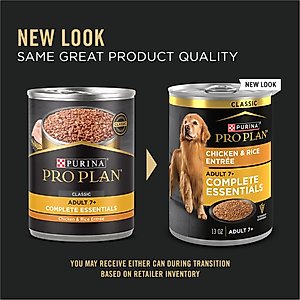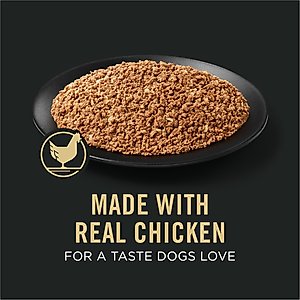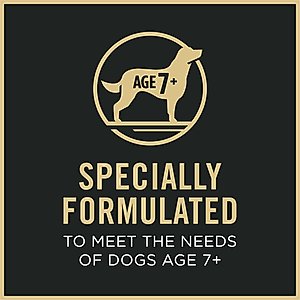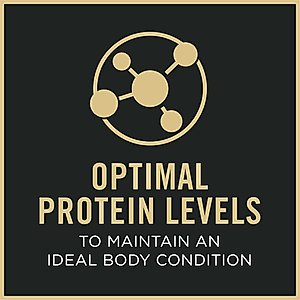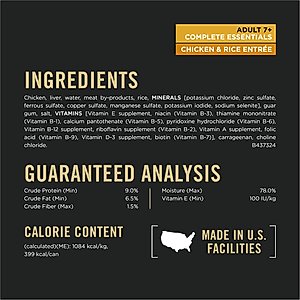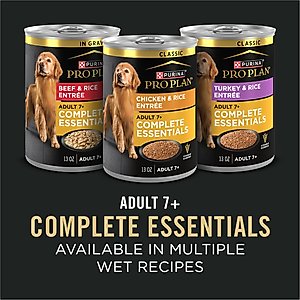The 10 Best Dog Foods for Senior Dogs
Jump to the list
Hill's Science Diet Senior Adult 7+ Small Bites Chicken Meal, Barley & Rice Recipe Dry Dog Food, 15-lb bag
$51.99Chewy Price
($3.47/lb)
Promo, New Customers Only: Spend $49+, Get $20 eGift Card
Our ratings
Nutritional Content
4.6/5
ExcellentDigestibility
4.6/5
ExcellentJoint Support
4.6/5
ExcellentCalorie Content
4.5/5
GreatPurina Pro Plan Complete Essentials Adult 7+ Shredded Blend Chicken & Rice High Protein Formula with Probiotics Dry Dog Food, 34-lb bag
$77.48Chewy Price
($2.28/lb)
Promo, New Customers Only: Spend $49+, Get $20 eGift Card
Our ratings
Nutritional Content
4.5/5
GreatDigestibility
4.5/5
GreatJoint Support
4.5/5
GreatCalorie Content
4.4/5
GreatRoyal Canin Size Health Nutrition Small Adult 8+ Dry Dog Food, 13-lb bag
$65.99Chewy Price
($5.08/lb)
Promo, New Customers Only: Spend $49+, Get $20 eGift Card
Our ratings
Nutritional Content
4.6/5
ExcellentDigestibility
4.5/5
GreatJoint Support
4.6/5
ExcellentCalorie Content
4.6/5
ExcellentHill's Science Diet Senior Adult 7+ Chicken Meal, Rice & Barley Recipe Dry Dog Food, 33-lb bag
$86.99Chewy Price
($2.64/lb)
Promo, New Customers Only: Spend $49+, Get $20 eGift Card
Our ratings
Nutritional Content
4.5/5
GreatDigestibility
4.5/5
GreatJoint Support
4.6/5
ExcellentCalorie Content
4.5/5
GreatPurina Pro Plan Bright Mind Adult 7+ Chicken & Rice Formula Dry Dog Food, 30-lb bag
$86.98Chewy Price
($2.90/lb)
Promo, New Customers Only: Spend $49+, Get $20 eGift Card
Our ratings
Nutritional Content
4.5/5
GreatDigestibility
4.5/5
GreatJoint Support
4.6/5
ExcellentCalorie Content
4.5/5
GreatHill's Science Diet Senior Adult 11+ Small Breed & Mini Breed Chicken Meal, Barley & Brown Rice Recipe Dry Dog Food, 15.5-lb bag
$60.99Chewy Price
($3.94/lb)
Promo, New Customers Only: Spend $49+, Get $20 eGift Card
Our ratings
Nutritional Content
4.6/5
ExcellentDigestibility
4.6/5
ExcellentJoint Support
4.6/5
ExcellentCalorie Content
4.6/5
ExcellentRoyal Canin Breed Health Nutrition Chihuahua Adult 8+ Dry Dog Food, 2.5-lb bag
$26.99Chewy Price
($10.80/lb)
Promo, New Customers Only: Spend $49+, Get $20 eGift Card
Our ratings
Nutritional Content
4.6/5
ExcellentDigestibility
4.6/5
ExcellentJoint Support
4.6/5
ExcellentCalorie Content
4.6/5
ExcellentPurina Pro Plan Sensitive Skin & Stomach 7+ Salmon & Rice Formula Dry Dog Food, 16-lb bag
$54.48Chewy Price
($3.41/lb)
Promo, New Customers Only: Spend $49+, Get $20 eGift Card
Our ratings
Nutritional Content
4.4/5
GreatDigestibility
4.4/5
GreatJoint Support
4.4/5
GreatCalorie Content
4.4/5
GreatHill's Science Diet Senior Adult 6+ Large Breed Chicken Meal, Barley & Rice Dry Dog Food, 33-lb bag
$86.99Chewy Price
($2.64/lb)
Promo, New Customers Only: Spend $49+, Get $20 eGift Card
Our ratings
Nutritional Content
4.5/5
GreatDigestibility
4.6/5
ExcellentJoint Support
4.7/5
ExcellentCalorie Content
4.5/5
GreatPurina Pro Plan Adult 7+ Complete Essentials Chicken & Rice Entree Wet Dog Food, 13-oz can, case of 12
$37.68Chewy Price
($0.25/oz)
Promo, New Customers Only: Spend $49+, Get $20 eGift Card
Our ratings
Nutritional Content
4.4/5
GreatDigestibility
4.4/5
GreatJoint Support
4.4/5
GreatCalorie Content
4.4/5
Great